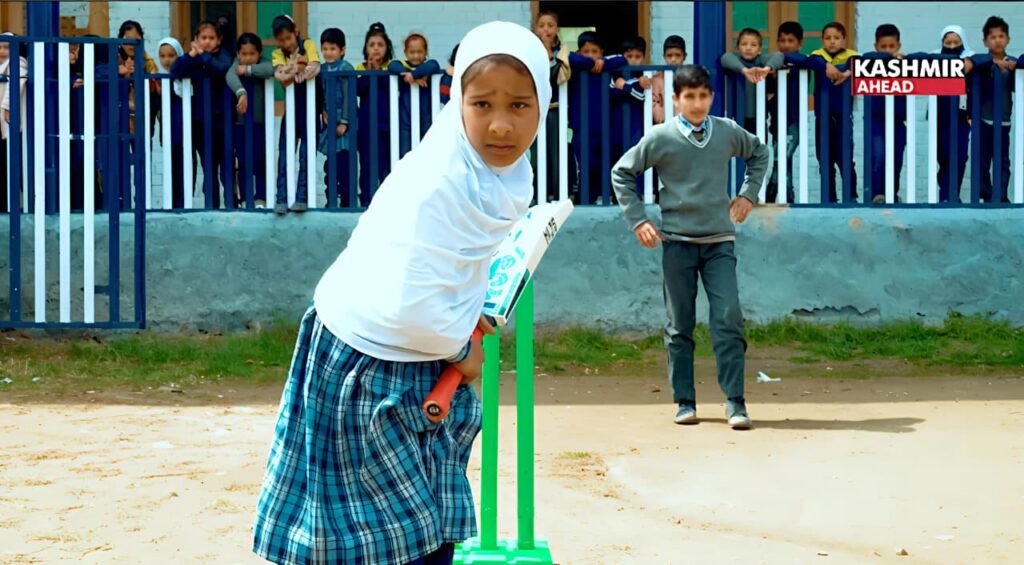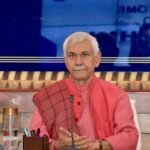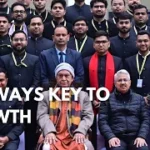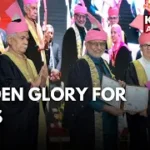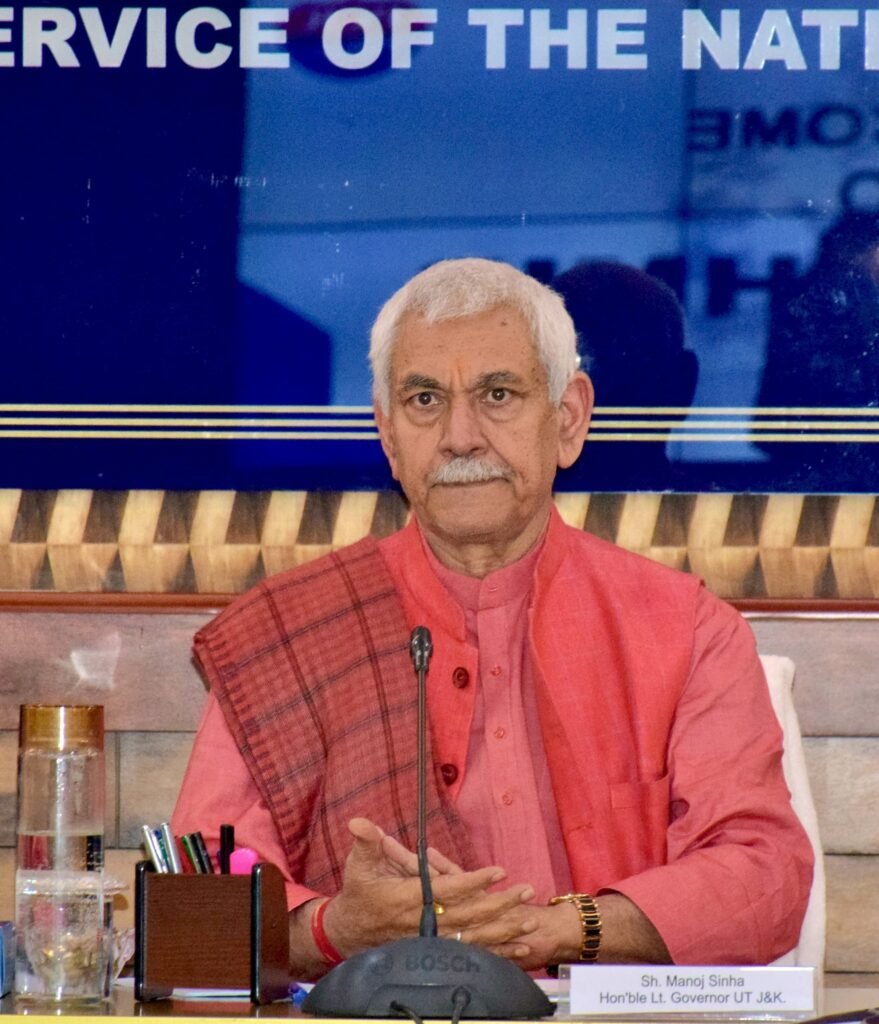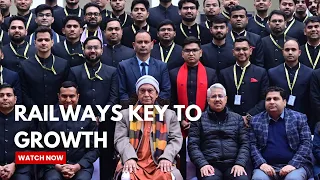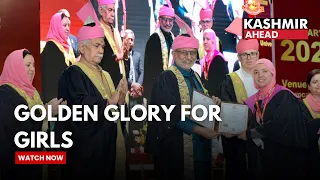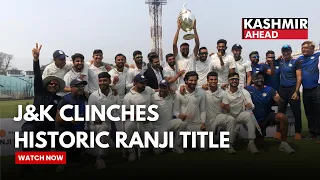Srinagar , September 14, 2025- In the shadow of the snow-capped peaks of Jammu and Kashmir, the serene meadows of Baisaran Valley near Pahalgam turned into a scene of unimaginable horror on April 22, 2025. A group of tourists, drawn to the lush landscapes for a peaceful getaway, were ambushed by militants affiliated with The Resistance Front (TRF), a Pakistan-based terror outfit. What followed was a brutal attack that claimed 26 lives—25 Indian citizens and one Nepali national—leaving families shattered and a nation in mourning. The assailants, traced back to safe houses in Muzaffarabad and Karachi, didn’t just target individuals; they struck at the soul of India’s sense of security. This tragedy wasn’t an isolated incident but part of a long, painful history of cross-border terrorism. India swiftly responded with Operation Sindoor, airstrikes on terror camps in Pakistan and Pakistan-occupied Kashmir, leading to a brief but intense military standoff that ended in a ceasefire on May 10. The attack echoed the horrors of Pulwama in 2019 and Uri in 2016, both linked to Pakistan-based groups, prompting calls for justice and isolation of the perpetrators. Yet, barely five months later, on September 14, 2025, the Dubai International Cricket Stadium is set to host an India-Pakistan clash in the Asia Cup—a multinational spectacle that has ignited a firestorm of public outrage. The popular sentiment in India is clear and resounding: No cricket with the sponsors of terror. From social media hashtags like #BoycottIndVsPak trending nationwide to emotional appeals from victims’ families, the boycott calls reflect a deep-seated frustration. Why should a nation still reeling from bloodshed entertain a sporting rivalry that feels like a betrayal? This article delves into the reasons behind this widespread refusal, drawing from voices across society that prioritize national dignity over the thrill of the game.
The Unhealed Wounds of Pahalgam
At the heart of the boycott fervor are the personal tragedies that humanize the statistics. Aishanya Dwivedi, widow of Shubham Dwivedi—one of the victims gunned down in Pahalgam—has become a poignant symbol of the public’s pain. In a tearful interview with ANI on September 13, she implored Indians: “Do not go to watch this and do not switch on your TV for this.” Slamming the Board of Control for Cricket in India (BCCI) as “not sentimental towards those 26 families,” she questioned the silence of cricketers and the revenue that could flow to Pakistan, a nation she labeled a “terrorist nation.” Her words resonate with millions: “Pakistan will use this just for terrorism. You will provide them revenue and prepare them to attack us once again.” Shubham’s father, Sanjay Dwivedi, echoed this sentiment, stating, “Blood and water cannot flow together,” invoking Prime Minister Narendra Modi’s own words on Indo-Pak relations. For families like the Dwivedis, the match isn’t mere entertainment—it’s a painful reminder that the lives lost in Pahalgam, and the soldiers who perished in Operation Sindoor, seem secondary to sporting commitments. Protests erupted across cities like Delhi and Kanpur, with effigies of Pakistan’s cricket team burned by Aam Aadmi Party (AAP) workers, who decried the government’s perceived indifference.
A History of Betrayal: Cricket as a Soft Target
India’s decision to play Pakistan in multilateral tournaments like the Asia Cup stems from commitments to the Asian Cricket Council (ACC) and International Cricket Council (ICC). The BCCI has long maintained a no-bilateral-series policy with Pakistan since the 2008 Mumbai attacks, a stance reiterated by Vice-President Rajeev Shukla post-Pahalgam: “India will not play any bilateral series with Pakistan moving forward.” Yet, this distinction feels hollow to many. Why participate in any format when the adversary remains unchanged?Public anger draws from precedents like the 2019 Pulwama attack, after which India boycotted bilateral ties but still faced Pakistan in the 2019 World Cup. The Pahalgam incident, deemed one of the worst civilian terror strikes since Pulwama, has amplified demands for a total sporting blackout. Former cricketer Shreevats Goswami, who had visited Pahalgam months before the attack, posted on social media: “You don’t play cricket with Pakistan. Not this time.” His words captured the sentiment that cricket, often called India’s religion, should not normalize relations with a state accused of harboring terrorists.Even within the cricket fraternity, dissent brews. Ex-India all-rounder Manoj Tiwary announced he was boycotting the Asia Cup entirely, saying, “It is beyond my understanding how someone can enjoy sports in this context.” Gautam Gambhir, now India’s head coach, had initially advocated suspending all ties post-attack but later urged the team to “focus on cricket” per government directives. However, his assistant coach Ryan ten Doeschate acknowledged the “sensitive issue,” noting the players’ awareness of public outrage.
Political Outrage and the Profit Over Patriotism Narrative
The boycott has transcended fandom, becoming a political flashpoint. Opposition leaders like Shiv Sena (UBT)’s Aaditya Thackeray questioned, “If blood and water can’t flow together, how can blood and cricket?” Uddhav Thackeray and Priyank Kharge of Congress slammed the BJP government for allowing the match, accusing it of prioritising profits over patriotism. Kharge tweeted: “Everyone but the Govt of India, BCCI, and ICC knows it is disgraceful to play cricket with Pakistan after the #PahalgamTerrorAttack. The BJP and RSS ‘nationalists’ have zipped their lips because their paymasters demand it.”AAP’s Saurabh Bharadwaj led protests, vowing to expose venues screening the match and calling for a nationwide boycott. Social media amplifies this: Hashtags like #BoycottAsiaCup have garnered millions of views, with users like pollster Yashwant Deshmukh declaring he’ll unfollow cricket accounts to avoid updates. Ad rates for the match have reportedly dropped 15-20%, a direct hit from fans switching off TVs—a “tight slap” to those pushing the fixture despite the terror links. Critics argue the BCCI’s “invisible boycott”—keeping senior officials away from the event—is a half-measure. Broadcasters and sponsors, eyeing the massive viewership (over 250 million for the last Asia Cup clash), stand accused of greed. As one X user put it: “Money and entertainment over the lives lost… and over the lives of the soldiers who protect us.”
National Dignity Over Runs and Wickets
The core of the sentiment is simple: Playing Pakistan legitimizes a nation blamed for sponsoring terrorism. Delegations sent globally post-Pahalgam highlighted Pakistan’s role, yet the government permitted the match under multilateral rules. For many, this hypocrisy undermines India’s global stance. As former Bengal cricketer Kedar Jadhav reiterated amid boycott calls: “This match shouldn’t happen.” Social media posts reflect this unity—from veterans urging remembrance of Pahalgam to celebrities like Aaditya Thackeray decrying the “mockery of emotions.” One viral thread questioned: “Soldiers sacrificed their lives, should we still play with Pakistan?” The answer, for a vast swath of Indians, is a firm no.As the Dubai stadium lights up today, empty seats and muted screens may speak louder than cheers. The Pahalgam attack isn’t just history—it’s a fresh scar demanding respect. Until justice prevails and terror ends, cricket with Pakistan feels like cheering for the wrong team. Nation first, always.

